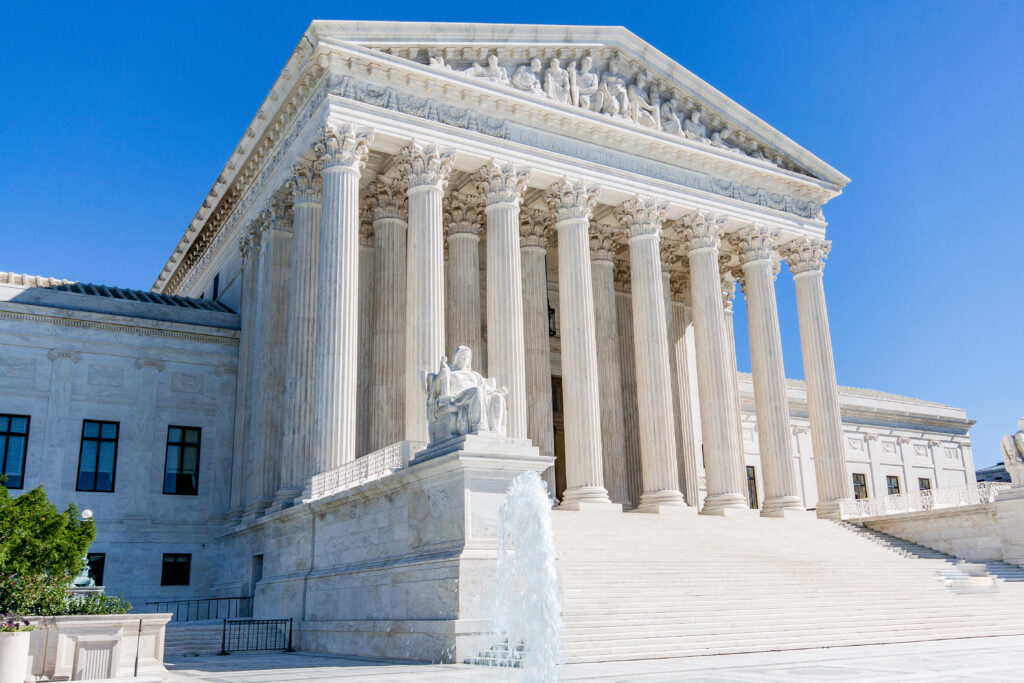
Sixth Circuit Doubles Down Despite Impending U.S. Supreme Court Decision
Just four days after the U.S. Supreme Court heard oral arguments in Obduskey v. McCarthy & Holthus LLP regarding whether non-judicial foreclosures qualify as debt collection under the FDCPA, the Sixth Circuit doubled down on its position that non-judicial foreclosures are debt collection. Building on its 2013 decision in Glazer v. Chase Home Finance LLC., 704 F.3d 453 (6th Cir. 2013), which joined the Fourth and Fifth Circuits in holding that non-judicial foreclosures are “debt collection” under the FDCPA, the Sixth Circuit held on January 11 that a law firm has an affirmative duty to “stop the clock” on an initiated foreclosure once it receives a §1692g(b) dispute from the debtor.
In Scott v. Trott Law, P.C., 2019 U.S. App. LEXIS 1015* (6th Cir., Jan. 11, 2019), the consumer alleged that Trott Law violated the FDCPA by failing to cease debt collection activities after receiving his dispute and request for validation. After being retained by Bank of America to begin non-judicial foreclosure proceedings, the law firm sent the consumer a debt validation letter. The law firm then proceeded forward with arranging a sheriff’s sale for Foreclosure of Mortgage by Advertisement, preparing a Notice of Mortgage Foreclosure Sale to post on the premises and to publish in the local newspaper for four consecutive weeks, and mailing a copy of the Notice to the consumer. Three days after the law firm initiated these actions, and still within the thirty-day debt dispute and validation period, the consumer disputed the debt and requested validation of the debt. Although the law firm took no further affirmative actions, the notice was posted on the premises and published in the newspaper after the law firm received the dispute and debt validation request. Within days of sending his dispute and request for validation, the consumer then filed its suit against the law firm alleging a violation of the FDCPA and seeking to enjoin the impending sale and then filed Chapter 13 thereby stopping the sale.
The district court granted summary judgment in favor of the law firm based on its determination that the debt collector was not required to validate the debt and had ceased collection of the debt because third-parties, not the debt collector, posted and published the Notice. On appeal, the Sixth Circuit addressed the issue of whether the actions taken after the consumer’s dispute and request for validation qualified as debt collection activity, and whether the FDCPA required Trott to take affirmative action to “stop the clock.”
The Sixth Circuit reversed. Because the FDCPA does not provide a precise definition of “debt collection” or what it means to cease debt collection, the Sixth Circuit analyzed the relationship between Michigan law on non-judicial foreclosures, debt collection under the FDCPA, and Congress’ intent and policy behind the requirement that a debt collector cease collection when it receives a dispute letter. 15 U.S.C. §1692g(b). Because Michigan law requires notice and publication before a non-judicial foreclosure, the Court concluded that such activities are continued debt collection activity under the FDCPA. The Court then reasoned that those activities remain the debt collector’s responsibility. Otherwise, according to the Court, dispute letters would not achieve Congress’ intended effect of “ceasing debt collection” if debt collection activities may continue solely because they are not performed by the debt collector.
The Court held that instead, a debt collector is responsible for the activities it sets in motion as required by state law in the non-judicial foreclosure process. The debt collector must “stop the clock” on all debt collection activities until the debt collector obtains verification. Scott at *13. Because the sale, posting, and publication (performed by the sheriff and newspaper, respectively) were required under state law in the non-judicial foreclosure process, those actions constituted debt collection and the law firm was responsible for intervening and stopping the entire process.
It is important to note that after hearing oral arguments in Obduskey, the Supreme Court may render the Sixth Circuit’s recent decision moot. Should the Supreme Court hold that non-judicial foreclosure is not debt collection, then Scott will have been wrongly decided. Until the Supreme Court weighs in, however, the circuit split continues.
Contributor: Anna Claire Turpin is a third-year law student at Campbell University and a graduate of James Madison University. Turpin currently serves as a law clerk with Smith Debnam’s Consumer Financial Services Litigation and Compliance group.

